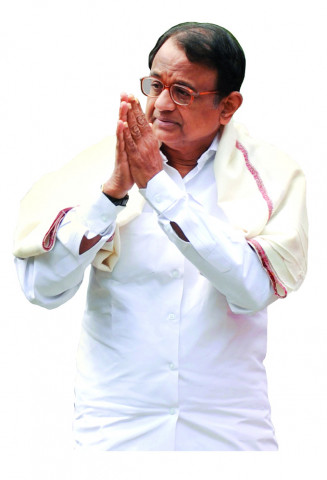Desperate, Delhi looks to appeasement
India says it will consider scaling back security in Kashmir, aiming to calm months of protests against Indian rule.

Desperate, Delhi looks to appeasement
Home Minister P Chidambaram said the government would soon announce a team to begin a dialogue with a broad cross-section of Kashmiris, including political parties, and that all protesters held for throwing stones would be freed.
The eight-point conciliatory package also included compensation for the families of dead protesters and a promise to review the scope for limiting a much-hated law that gives the military sweeping powers to search, arrest or shoot.
“We will request the state government to immediately convene a meeting of the (security) Unified Command and to review the deployment of security forces in Kashmir Valley, especially Srinagar,” Chidambaram told reporters after a meeting of the Indian cabinet’s committee on security.
Indian Kashmir has been in a siege-like state of strikes, protests and curfew for months. Most shops, offices and schools are shut, and roads deserted.
Critics have until now accused Prime Minister Manmohan Singh of failing to take the largest pro-independence protests in two decades seriously, and the plan marked a dramatic shift in the government’s position.
Opening gambit
“This could be an opening gambit for building confidence because measures like releasing people and reducing security foot prints will resonate with the common people,” said Siddharth Varadarajan, strategic affairs editor of the newspaper The Hindu.
But Kashmiri hardliners rejected Chidambaram’s offers as “eyewash” and declared a 10-day protest. “None of our demands has been met, so we will continue the protests,” said APHC leader Syed Ali Shah Geelani, who has emerged as the leading face of the present cycle of street violence.
Hurriyat leader accuse the army of large-scale human rights abuses, and want the law withdrawn.
Chidambaram said the state would look at the option of limiting the areas of Kashmir where the act operates. He also said the state government would consider scaling down the number of bunkers and checkpoints in Srinagar and other towns.
“We think these steps should address the concerns of different sections of the people in Jammu and Kashmir, including the protesters,” Chidambaram said.
Analysts said the move suggested that the federal government might be willing to shift more responsibility for handling the revolt to the state government in Kashmir and its chief minister, Omar Abdullah.
State govt call
Omar Abdullah told reporters in New Delhi that he would convene a meeting next week to discuss ways to “reduce the footprint of security forces”.
“(I) hope this (the conciliation plan) will be the first step to the final destination of reaching a political solution to the Kashmir issue,” Omar said.
Geelani has laid down five conditions for a dialogue with New Delhi. They include India accepting Kashmir as an international dispute, revoking the Special Powers Act and demilitarising the region.
Published in The Express Tribune, September 26th, 2010.



















COMMENTS
Comments are moderated and generally will be posted if they are on-topic and not abusive.
For more information, please see our Comments FAQ